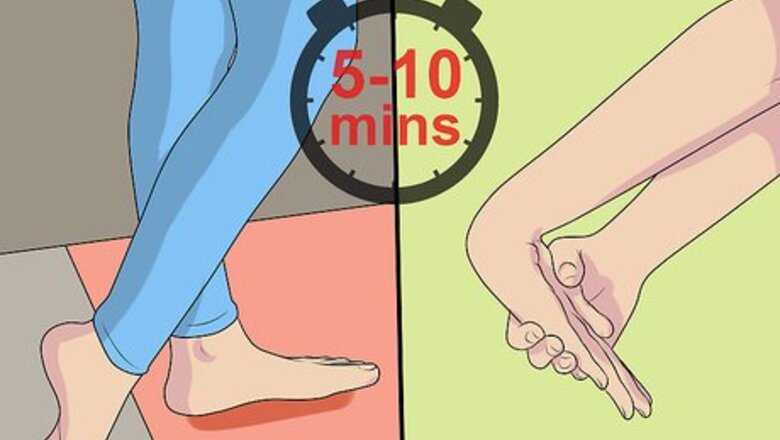
views
X
Research source
Getting Exercise in the Garden
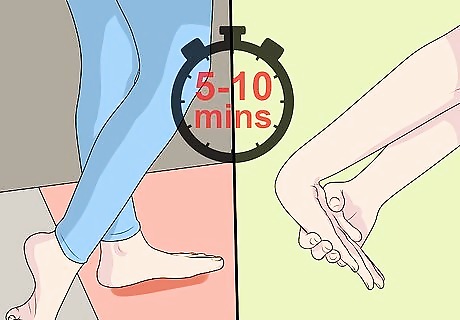
Warm up before gardening. Like you would with other types of exercise, it's important to warm up before you start exerting yourself in the garden. Stretch your legs, arms, and hands before you start so that they will be prepared for the work ahead. You should spend at least 5 to 10 minutes warming up before gardening.
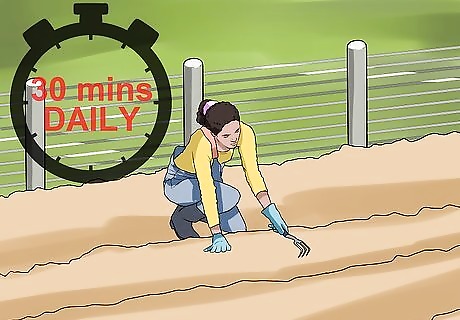
Work in the garden regularly. In order to improve your health by getting exercise in the garden, you should do it regularly. Working in your garden for several hours over the course of the week, for instance, 30 minutes daily, can give you some much needed regular exercise. Getting 30 minutes of moderate exercise every day can lower your blood pressure and cholesterol. It can also help prevent diabetes and heart disease, as well as slow the development of osteoporosis.
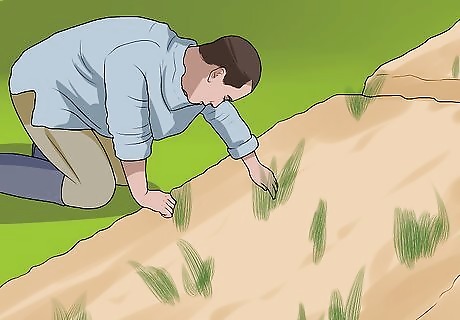
Vary your movements. As with other types of exercise, it's a good idea to vary the types of movements you do while getting exercise in the garden. If you have a variety of tasks to do in the garden, set a specific amount of time you will do each and then rotate between them, even if you don't complete a task in your set amount of time. This variation in tasks can be especially helpful if you have one that is hard on the body, such as kneeling to weed garden beds. Weeding for 15 to 20 minutes at a time and then taking a break to do another activity will help to avoid pain or overexertion.
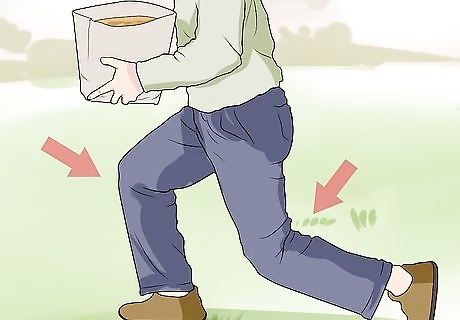
Do controlled bending and lifting. When working in the garden you need to be careful and intentional about how you lift and stretch. For example, use proper lifting technique when moving heavy bags of soil or fertilizer. This entails using the strength of your legs instead of depending on your back muscles. Additionally, you should squat instead of kneeling when possible, maintain the natural curve of your back, and avoid twisting while lifting heavy loads.
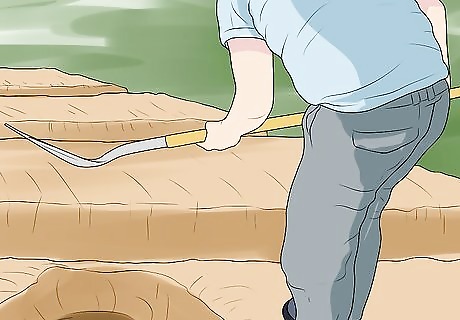
Put in some effort. In order for gardening to count as exercise, you need to raise your heart rate and put out some physical effort while doing it. This means that just standing around watering doesn't really count as exercise. Some things to do in the garden to raise your heart rate include digging, raking leaves, weeding, mowing, and turning a compost pile. If you want to increase your effort while mowing, try using a push mower instead of a gas or electric one.
Enjoying Fresh Food From the Garden

Pick a variety of plants to grow. When planning out your garden, you should pick out a variety of plants that will increase your health and vary your diet. Increasing the biodiversity in your yard is also a good way to be sustainable and help the environment. Some vegetables that are relatively easy to grow, depending on your climate, include tomatoes, lettuce, peas, beans, squash, and cucumbers. Begin with a few of these if you are new to gardening. Growing some herbs, such as chives and thyme, can be very easy as well. These herbs can really enhance the flavor of the vegetables that you grow. When planning out your garden, you also need to take your soil, the sun exposure of your garden, and your climate into consideration. If your yard doesn't get a lot of sunlight, you can still grow shade-loving plants like herbs, greens, and mushrooms.
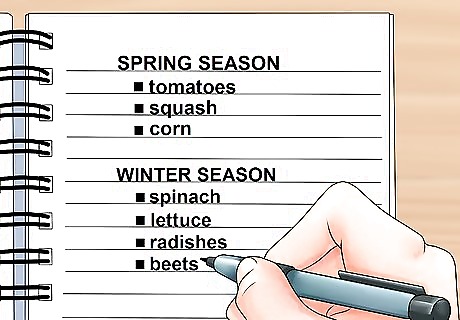
Plan for different growing seasons. In addition to growing a variety of plants, you need to plan out when certain plants should be planted and grown. There are specific times when fruits and vegetables need to be put in the ground so that they grow most effectively. This means that you will have several cycles of planting every year, usually in the early spring and the early fall. For instance, many plants need to be planted after the last frost in the spring, such as tomatoes, squash, and corn. However, some plants can withstand those late winter and early spring frosts, such as spinach, lettuce, radishes, and beets. If you plan out your growing season correctly, you can have fresh fruits and vegetables throughout the year. When to plant certain plants depends greatly on what climate you live in. Do some research about your specific climate zone, what grows best there, and when certain plants should be put in the ground.
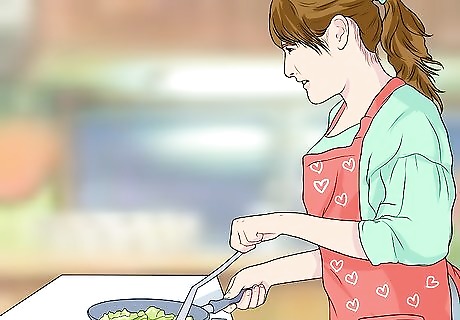
Cook home-grown food in a healthy way. Once you have grown your fruits and vegetables, it's important to cook them in the right way. Cooking them correctly will both retain the nutrients inside of them and will help you avoid adding unhealthy ingredients into the meal. In general, cooking vegetables lightly and avoiding adding a lot of fat to them will help you to get the most out of your vegetables. Avoid adding a lot of fat to your vegetables when cooking them. Instead of frying or sauteing them with added oil, try steaming them to bring out their wonderful flavor without incorporating a lot of unhealthy fat. Some vegetables provide more nutrients when raw and some provide more nutrients when cooked. For instance, cooking asparagus lightly releases more nutrients into your body. However, beets give you more nutrition when served raw. Do some research to figure out how your vegetables are best served.
Focusing on Your Mental Health

Increase happiness and contentment. Not only does gardening help your physical health, it can help your mental health as well. Working in the garden can be a deeply satisfying project that gives you a sense of accomplishment and satisfaction. In fact, gardening has been shown to improve your overall outlook and life satisfaction. Working in the garden can even cause your body to release specific hormones that increase happiness and contentment.

Relieve stress. Spending time working in the garden allows you to clear your mind and let go of stress. It can be especially helpful for those that need time to recover from mental fatigue and those that find satisfaction from the nurturing and care that gardening requires. Because gardening helps to relieve your stress, it can actually lower your blood pressure. In fact, just looking at plants has been shown to reduce anger and muscle tension.

Help your long-term brain health. Not only does gardening help your mental health right when you are doing it, it can help your brain health in the long run. For example, gardening has been shown to prevent dementia in seniors, as it exercises the parts of the brain that are connected to learning and creativity. Even for those that have dementia, gardening can improve mental health. It has been shown to reduce problems with aggression associated with dementia.




















Comments
0 comment